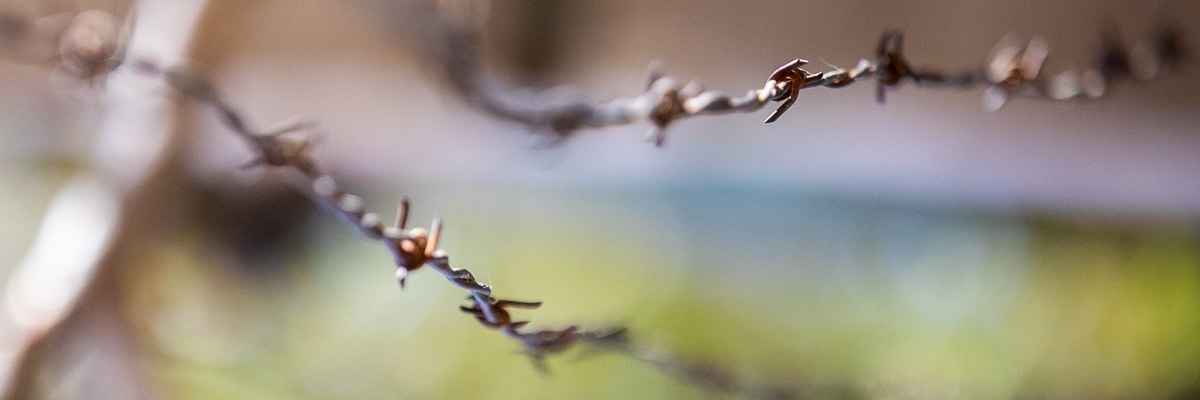
Psychologist and Holocaust survivor Viktor Frankl (1905–1997) describes the denigrating horror of the Nazi concentration camps:
In the camps, even the life that was considered worthy only of death was fully exploited to its absolute limit. What a devaluation of life, what a debasement and degradation of humankind!… Were we not told often enough in the concentration camps that we were “not worth the soup,” this soup that was doled out to us as the sole meal of the day, and the price of which we had to pay with the toil of digging through the earth? We unworthy wretches even had to accept this undeserved gift of grace in the required manner: as the soup was handed to him, each prisoner had to doff his cap. So, just as our lives were not worth a bowl of soup, our deaths were also of minimal value, not even worth a lead bullet, just some Zyklon B. [1]
After his release, Frankl became known for his radical insistence on saying “yes to life in spite of everything”:
It is life that asks the questions, directs questions at us—we are the ones who are questioned! We are the ones who must answer, must give answers to the constant, hourly question of life, to the essential “life questions.” Living itself means nothing other than being questioned; our whole act of being is nothing more than responding to—of being responsible toward—life. With this mental standpoint nothing can scare us anymore, no future, no apparent lack of a future. Because now the present is everything as it holds the eternally new question of life for us. Now everything depends on what is expected of us. As to what awaits us in the future, we don’t need to know that any more than we are able to know it. [2]
Facing imprisonment under German occupation, Dutch Jewish writer Etty Hillesum (1914–1943) expressed her love for life:
“Reposing in oneself” … probably best expresses my own love of life: I repose in myself. And that part of myself, that deepest and richest part in which I repose, is what I call “God.” In Tide’s [Hillesum’s Christian friend] diary I often read, “Take him gently into Your arms, Father.” And that is how I feel, always and without cease: “as if I were lying in Your arms, oh God, so protected and sheltered and so steeped in eternity.” As if every breath I take were filled with it and as if my smallest acts and words had a deeper source and a deeper meaning.…
The reality of death has become a definite part of my life; my life has, so to speak, been extended by death … by accepting destruction as part of life and no longer wasting my energies on fear of death or the refusal to acknowledge its inevitability. It sounds paradoxical: by excluding death from our life we cannot live a full life, and by admitting death into our life we enlarge and enrich [life]. [3]
References:
[1] Viktor E. Frankl, Yes to Life: In Spite of Everything (Boston, MA: Beacon Press, 2020), 22–23.
[2] Frankl, Yes to Life, 33–34.
[3] An Interrupted Life: The Diaries of Etty Hillesum, 1941–1943, trans. Arno Pomerans (New York: Pantheon Books, 1984), 173, 131–132.
Image credit and inspiration: Jenna Keiper, barbed (detail), 2021, photo, Albuquerque. Click here to enlarge image. Even in the midst of twisted barbs, green life survives and thrives.
Story from Our Community:
I was brought up in a traditional Catholic family, and I struggle now to retain that connection. I struggle to trust in a clerical and dogmatic system that exhibits hypocrisy and has embedded a lot of shame and guilt inside me. CAC has helped me to trust in my inner authority and see God everywhere and in everyone. Paradoxically, this has resulted not in a loss of faith but in a deepening of it.
—Kevin G.




